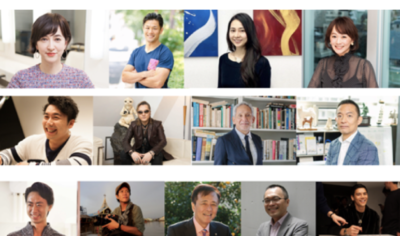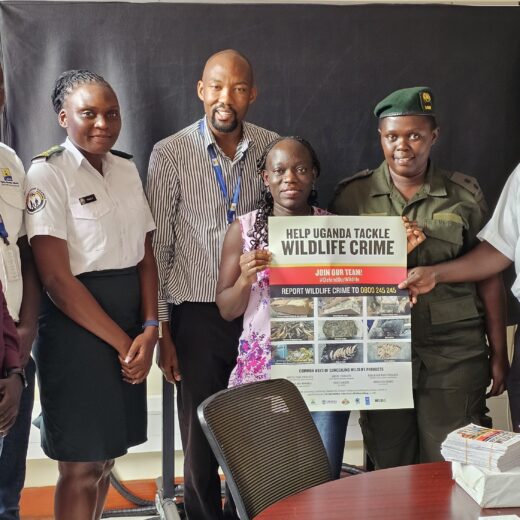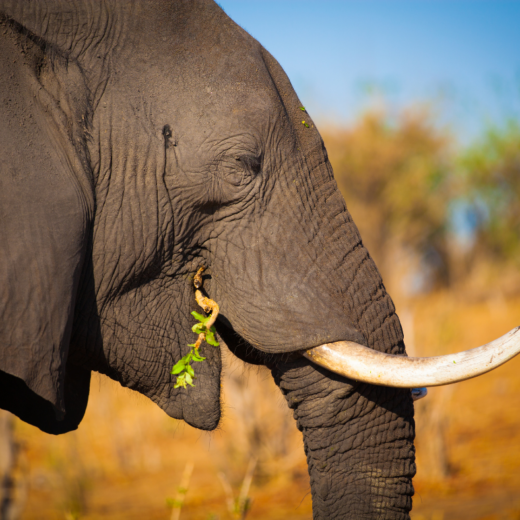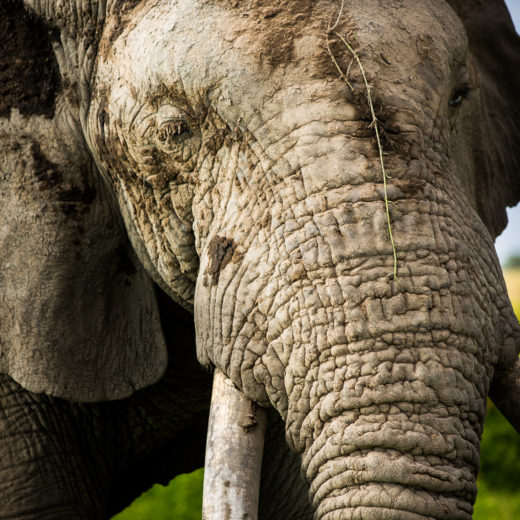
WildAid and Tears of the African Elephant (TAE) have united prominent voices from across Japanese society to call on the Government of Japan to announce the closure of its ivory trade before the 2020 Tokyo Olympics.
Aiming to increase public awareness of the ivory issue, WildAid and TAE created video messages from influential Japanese campaign ambassadors including: Christel Takigawa, a popular TV anchor-woman and the president of Christel Vie Ensemble Foundation; Toshiaki Hirose, former captain of Japan’s national rugby team; legendary musician Tatsuya Ishii; and Shibuya Ward Mayor Ken Hasebe.
Representing the 15 campaign ambassadors at a press conference last week were three-time Paralympian and silver-medalist Daisuke Uehara and internationally acclaimed calligraphist and artist Yuuna Okanishi.
Christel Takigawa said: “As a Japanese, it’s a shame for us that we are part of the ivory poaching problem. We love elephants and want to refuse ivory so we can help protect them. As we welcome the world for the 2020 Tokyo Olympics, we want everyone to know we are a champion for elephants.”
Tatsuya Ishii said: “Teaching our children at an early stage, that living on this planet means we have to understand we are all connected from the amoebas in the soil to elephants, would be the key to saving our planet from the current situation.” Toshiaki Hirose commented, “I would love for more people to learn about this issue through the Rugby World Cup 2019, and the Tokyo Olympic Games 2020. Let’s create a wonderful and beautiful earth together.”
African elephant populations have plummeted in the past century with over 25,000 elephants poached each year for their tusks to meet demand for ivory. With ivory bans and similar legislation in other countries such as China, including Hong Kong SAR, the U.S., Thailand, Vietnam, and Singapore, and Japan remains the largest legal ivory market in the world.
Unlike China where ivory is perceived as a symbol of wealth, Japan’s ivory is passively used for “hankos,” a name stamp used for signing official documents. Most Japanese people remain unaware of the global ivory crisis or that hankos can easily be made with other materials.
“Hanko name seals were not traditionally made of ivory and today can be made from many other materials, so there is no need to continue ivory sales,” Peter Knights, CEO of WildAid said.
As explained by a lawyer and expert on Japan’s ivory regulations, Masayuki Sakamoto, from the Japan Tiger and Elephant Fund, “Japan continues to be urged by at least 32 African states and the rest of the world to close its legal ivory market as it’s incapable of controlling illegal trade. The 113 illegal ivory shipments to China between 2011 and 2016, of which only six were found by Japan’s customs, clearly shows inadequate controls.”
A 2016 CITES resolution urges all signatories with domestic ivory markets to immediately end local ivory trade to protect the African elephant. Recent announcements by the Japanese government requiring registration of whole tusks leaves large loopholes for traders who simply cut the tusks into pieces.
Highlighting the broader concern of Japan’s involvement in the ivory trade, journalist Hideki Miura explained how the terrorist group Al-Shabaab in Kenya used ivory to finance up to 40% of their activities. He spent three years in Africa researching the poaching crisis and ivory trade for his recently published book “Tusk,” which received the Grand Prix award for Shogakukan Non-Fiction Awards as well as the BookShop Award.
He said, “when I went to Garissa University to report on the Al-Shabaab attack where they killed 147 people, some of the surviving students there asked me if Japan used ivory. This question forced me to come to grips with this dangerous and devastating trade and sparked my journey over two years to investigate it.”
WidAid’s latest message, “Choose Not to Choose Ivory,” builds on the animated video “Hankograph,” which shows the connection between the hankos and elephant poaching. A petition being circulated among the Japanese public has 6,300 signatures, says WildAid’s Japan Representative, Airi Yamawaki. WildAid and TAE hope to secure 30,000 signatures to submit to the Ministry of Environment and the Prime Minister Shinzō Abe.
You can help close Japan’s legal ivory market by tagging us @WildAid and using #1YearToGo.
Stay in touch and get the latest WildAid updates.
SIGN UP


